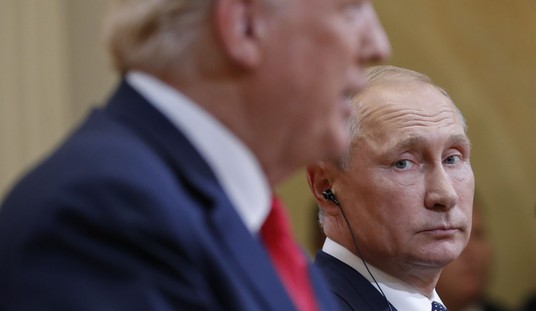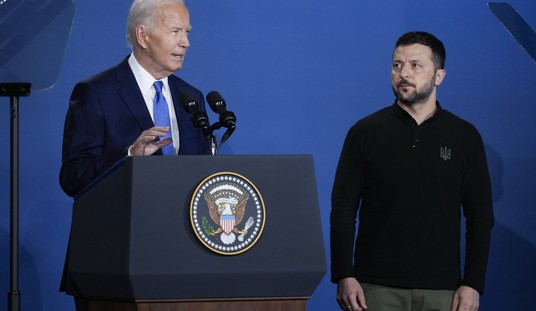When Russia announced its intention to help a Muslim country run by extremists build a nuclear-power system, the US demanded an end to it, proclaiming it a danger to world peace. When the US does the same thing, is it not just as much of a threat? Rep. Edward Markey wants to know how the Bush administration splits that particular hair before we start helping Saudi Arabia split atoms:
Here’s a quick geopolitical quiz: What country is three times the size of Texas and has more than 300 days of blazing sun a year? What country has the world’s largest oil reserves resting below miles upon miles of sand? And what country is being given nuclear power, not solar, by President George W. Bush, even when the mere assumption of nuclear possession in its region has been known to provoke pre-emptive air strikes, even wars?
If you answered Saudi Arabia to all of these questions, you’re right.
Last month, while the American people were becoming the personal ATMs of the Organization of the Petroleum Exporting Countries, Secretary of State Condoleezza Rice was in Saudi Arabia signing away an even more valuable gift: nuclear technology. In a ceremony little-noticed in this country, Ms. Rice volunteered the U.S. to assist Saudi Arabia in developing nuclear reactors, training nuclear engineers, and constructing nuclear infrastructure. While oil breaks records at $130 per barrel or more, the American consumer is footing the bill for Saudi Arabia’s nuclear ambitions.
Markey wonders why we haven’t pushed Saudi Arabia towards solar power instead, which weakens his argument enormously. We don’t use solar power in our own deserts to any significant degree, and for good reason — it’s not viable for long-term massive electrical production. Storage technology has not advanced enough to make solar power work, or else we’d be using it instead of coal.
However, he has a very good point about both the expense and the security of subsidizing Saudi Arabia’s nuclear-power venture. Even if the Saudis have the best of intentions, they have a big problem with radicals and extremists, some of whom have patrons in the royal family. This is a nation so extreme in its official application of Wahhabism that they let fifteen girls die in a fire rather than allow them to flee the school because they were not wearing appropriately Islamic clothing at the time. Women still cannot drive, let alone vote. Is this the kind of country to which we want to hand keys to nuclear power?
The Bush administration may have another argument for this program, and perhaps even two, considering the current state of the region. The administration may believe that nothing can stop Iran from producing nuclear weapons, and wants to set up the Saudis as a regional counterweight. If that’s the best argument they have for this, it’s a very dangerous one. The likelihood of an overthrown Saudi royal family is not exactly remote, and if nuclear technology falls into the hands of a successor regime comprised of even more radical Wahhabists, we will have made the region twice as unstable as before.
Saudi Arabia could eventually achieve nuclear technology on its own, of course, and this may be the other Bush administration argument. If the US controls the kind of nuclear power that the Saudis get, they can keep it from being transformed into weapons technology. This makes some sense, especially since the Saudis have already declared their intention to seek “peaceful” nuclear power. We could push them towards the kinds of reactors that don’t lend themselves to producing weapons-grade fissile material if we remain in control of the program, and we can keep a closer eye on it from the inside than we can from the outside.
It seems to me, though, that the best way to keep any of these countries from gaining nuclear weapons is to cut off their revenue streams. If we started drilling for oil in the US and adopted the nuclear power that we want to give the Saudis, we could undercut the current pricing structure that makes these nations flush with cash. Instead of relying on Middle Eastern resources, we could rely on our own, producing jobs and our own energy while the market crashes for OPEC. That way, we don’t have to give nuclear power to Wahhabist extremists to use as a counterweight to Persian extremists.








Join the conversation as a VIP Member